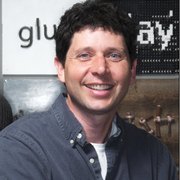- Level Foundation
- Duration 6 hours
- Course by Exploratorium
-
Offered by

About
The Tinkering Fundamentals course will offer educators and enthusiasts an opportunity to develop a practice of tinkering and making. We see tinkering as a serious endeavor—one that is generalizable across content and especially good at interweaving disciplines in a way that leads to complex projects and individualized learning opportunities. Tinkering has recently been introduced into the educational field as a potential driver of creativity, excitement, and innovation in science learning. It is seen by many as an effective means to engage in exploring STEM concepts, practices and phenomena. Tinkering typically blends the high and low tech tools of science along with a strong aesthetic dimension that supports children’s (and adults’) self expression. NB: This is a hands-on course, so you will need several tools and materials to do weekly activities. You are welcome to purchase only what you don't already have—or even better try to scrounge them from surplus stores! We have put together a list of recommended materials, which you can find here: http://bit.ly/motion-materials For over a decade, the Exploratorium has been developing science-rich tinkering activities for both children and adults. We see tinkering as a fun yet serious endeavor—spanning many disciplines and content areas and fostering connections between art, science, and technology. Learners follow their own path to understanding by investigating tools and materials and exploring questions that interest them. This opens up a wide range of possible answers rather than any specific “right” one, particularly for teaching STEM (Science, Technology, Engineering, Math) subjects in the classroom. This course centers on activities related to Motion and Mechanisms, which offer a wealth of opportunities for thinking through making. In this course, we won’t just show you how we develop tinkering activities; we’ll also delve into why. We’ll focus on three important aspects: activity design around specific materials, facilitation strategies, and environmental organization. We’ll also share some guiding principles and learning indicators we’ve developed that can help you integrate tinkering into your elementary and middle-school science program. Whether you’re new to making or a seasoned tinkerer, we hope this course will help you take the next step! OUR APPROACH TO TEACHING This is a hands-on workshop, not a lecture-based class. Participation is essential! We want everyone to be making and tinkering together: trying things out, asking questions, sharing ideas, and reflecting together as a community. This is a wonderful chance to tinker and learn alongside people from all over the world and from all walks of life, so don’t be shy! PLEASE NOTE: We have put a great deal of effort towards creating a supportive space that encourages exploration. We’ll give you a few ways to get started; prompt you to share your own observations and experience as learners, designers, and facilitators; and hopefully spark interesting conversations and discoveries along the way. While it’s not a requirement, we encourage you to take this class with a friend or colleague, or meet with other people in your area: having support or doing activities with others will enhance your experience and help you stay engaged. This project was funded by generous support from Overdeck Family Foundation and the National Science Foundation.Modules
Introduction to the course
3
Videos
- Motion and Mechanisms: Welcome to the course
- Course Overview
- Motion and Mechanisms Activities
2
Readings
- Week Overview
- Your turn
Overview, Logistics, and Requirements
3
Readings
- Course Overview
- Course format
- Credit Requirements
Marble Machines
5
Videos
- Marble Machines
- Designing for Tinkerability: Marble Machines
- Inspiration: Bernie Zubrowski
- Making Marble Machines
- Pedagogical Perspective: Eleanor Duckworth
2
Readings
- Week Overview: Iteration with Marble Machines
- Your Turn
Cardboard Automata
5
Videos
- Cardboard Automata
- Designing for Tinkerability: Cardboard Automata
- Inspiration: Carlos Zapata
- Making Cardboard Automata
- Pedagogical Perspective: Hubert Dyasi
2
Readings
- Week Overview: Creative Expression with Cardboard Automata
- Your Turn
Cardboard Automata Mechanism Videos
10
Videos
- Cardboard Automata Mechanism 1
- Cardboard Automata Mechanism 2
- Cardboard Automata Mechanism 3
- Cardboard Automata Mechanism 4
- Cardboard Automata Mechanism 5
- Revealed: Mechanism 1
- Reveal: Mechanism 2
- Reveal: Mechanism 3
- Reveal: Mechanism 4
- Reveal: Mechanism 5
Chain Reaction
7
Videos
- Chain Reaction
- Designing for Tinkerability: Chain Reactions
- Inspiration: Arthur Ganson
- Making Chain Reactions
- Pedagogical Perspective: Bernie Zubrowski
- Chain Reaction Connections
- Arthur Ganson Considers Chain Reactions
2
Readings
- Week Overview: Problem Posing with Chain Reaction
- Your Turn
Research + Practice
1
Peer Review
- Tinkering Journal
5
Videos
- Research + Practice
- Teachers Talking About Tinkering
- Wrap up
- Making & Tinkering: The Intertwined Dimensions of Learning
- Making & Tinkering: The Power of Ideas
2
Readings
- Week Overview: Research + Practice
- Your Turn
Auto Summary
Explore the exciting world of tinkering with the "Tinkering Fundamentals: Motion and Mechanisms" course, designed for educators, makers, and enthusiasts keen to integrate creativity and innovation into science learning. Offered under the Personal Development domain, this hands-on workshop is crafted by the Exploratorium, renowned for developing science-rich tinkering activities for over a decade. Led by expert instructors, the course emphasizes the blend of art, science, and technology, encouraging participants to explore STEM concepts through individualized projects that foster critical thinking and self-expression. The focus on Motion and Mechanisms provides numerous opportunities for hands-on experimentation and learning. Participants will delve into the design of tinkering activities, effective facilitation strategies, and the organization of the tinkering environment. The course also introduces guiding principles and learning indicators to help integrate tinkering into elementary and middle-school science programs. This 360-hour foundational course on Coursera offers a supportive and collaborative learning experience, encouraging participants to share observations, ask questions, and reflect together. The course is structured to foster a global community of learners, making it perfect for those new to making or seasoned tinkerers. Join this engaging course and take the next step in your tinkering journey, with flexible subscription options and additional support from the Overdeck Family Foundation and the National Science Foundation. Ideal for educators and enthusiasts alike, this course promises to ignite creativity and innovation in science learning.

Mike Petrich

Karen Wilkinson

Luigi Anzivino

